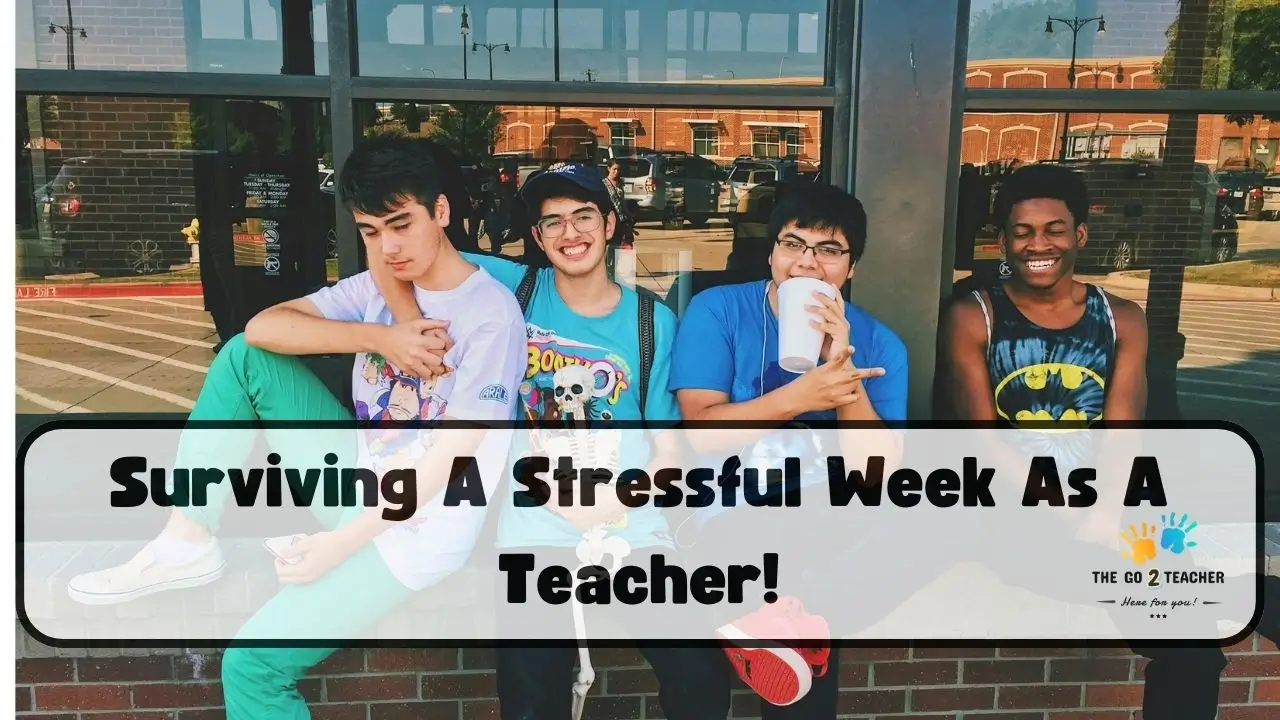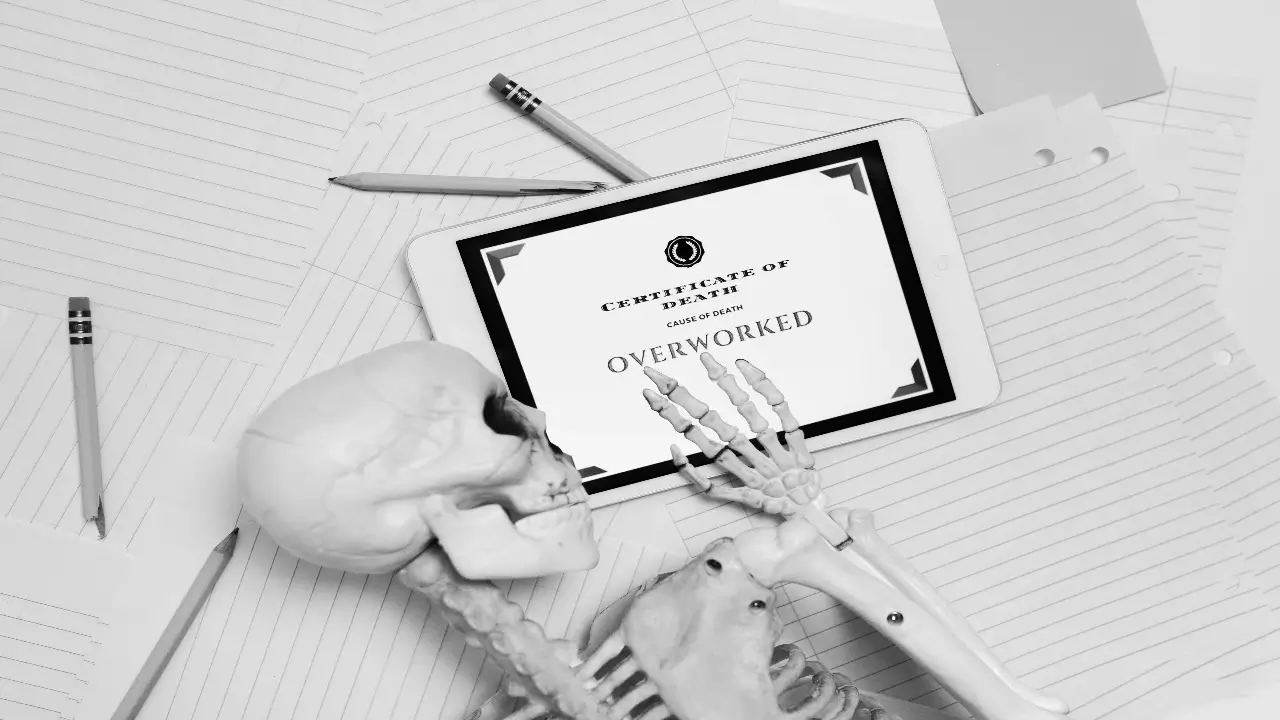3 Ways to Survive a Stressful Teaching Week
Sep 29, 2024


Kas
We have all had those days or weeks where we’ve hit our limit! The work seems to be piling up, our students aren’t engaging in the lessons, there’s a stack of emails to respond to, and parents that need to be contacted. Teaching is very much like a rollercoaster; there are times in the year where you feel like you’re hanging on for dear life. Here are some tips to survive those periods of the year and guidance on how to develop healthy habits to prevent these times from occurring more regularly.
Turn Off Your Notifications
There are many professions where, when you clock out, your job ends. Unfortunately, teaching is not one of those. Many teachers find themselves in a vicious cycle of trying to “catch up” or get “ahead” by working extra hours each night after the regular school day. As we gain more years of experience in the profession, we learn that the work is not finite. It keeps coming, and there is no real “getting ahead.”
Now, that doesn’t mean you should do nothing if you’re behind. Of course, you need to know what you’re teaching, have your planning done, and complete tasks that will create an organised school day. However, you must be relentless in your decision to officially switch off when you leave school. This means:
- No emails
- No app notifications for your classroom (Dojo, Twinkl, SEQTA, etc.)
- No searching for resources or planning
- No school discussions with colleagues
The average person receiving a 146 notifications daily, translating to one notification every ten minutes (Insight, 2024)

It’s important to switch off each night to prevent burnout and create healthy work-life patterns, ensuring you’re mentally rested and enjoying time with family and friends outside of work. If you don’t start doing this, trust me—you’ll feel like you’re in an endless cycle of constantly working! Enforce these boundaries, and soon colleagues, families, and staff members will know not to contact you outside of school hours or expect responses, as you are no longer available after work.
Bringing Stress Home
This is a simple tip but can be a hard pattern to break. If you’re having a bad or stressful workday, venting or seeking support from those close to you is important. Sharing the positives and negatives of your day is something we all do, and it’s a great way to debrief your significant other.
However, be mindful not to go home every day and dwell on the negatives. If you need a second opinion or some advice, get it promptly, but don’t make it a habit to relive the day’s upsetting moments at home. This will blur the line between work and home and prevent you from de-stressing and welcoming positivity.
Try to focus on positive things. If there was nothing positive, simply explain you didn’t have a great day but that you’re ready to put it behind you.
You’re not going to have a perfect teaching day every day. Teaching is about how we respond to challenging situations, which are bound to happen daily as we work in a dynamic environment with students, families, and staff. Constantly dwelling on the bad will increase anxiety and stress and affect your happiness outside of work. Accept that each day may have its challenges, focus on the positives and improvements that can be made, and move on.
“Classroom teachers have greater levels of stress than any other education role” (Social Psychology of Education)

Exercise Every Day!
I won’t go into all the research and evidence on the benefits of exercise for mental and physical health. Just know that it’s been proven: if you want to feel less stressed, anxious, and more relaxed, exercise has been shown to be more effective than counselling or over-the-counter medication.
University of South Australia researchers are calling for exercise to be a mainstay approach for managing depression as a new study shows that physical activity is 1.5 times more effective than counselling or the leading medications. (UniSA 2024)
- Go for a walk or a walk-and-talk with a friend or partner
- Go to the gym
- Go for a run
- Do some laps around the school oval before heading home
- Ride a bike
Exercise is the single most effective thing you can do to feel better daily! It’s free, and the options are endless. Make sure you exercise to a level where you’re panting and working up a sweat.
- Exercise lowers stress hormones like cortisol and increases endorphins, improving mood and reducing stress (Harvard Health, 2018) .
- Physical activity enhances stress resilience by reducing heart rate and blood pressure responses to stress (Smith & Merwin, 2021) .
- Aerobic exercise reduces symptoms of anxiety and depression by boosting serotonin and dopamine levels (Mayo Clinic, 2022)

Sleep Is Key
Make sure you’re getting enough sleep. This will vary for everyone, but health professionals recommend 6-8 hours at minimum. I’ve found that being well-rested makes a massive difference in how I handle the stresses of the workday, allowing me to think much more clearly.
One thing that has helped me immensely is supplementing with magnesium, as I find it hard to switch my brain off at night. However, I’m a teacher, not a doctor, so please seek medical advice before trying this. But personally, it has helped me get deep, restful sleep with no apparent side effects. Sleep seems like a basic recommendation, similar to exercise but I can honestly sleep getting a good nights sleep significantly reduced the feelings of stress i would feel in a regular teaching day and left me with energy after work to exercise, spend time with loved ones and enjoy my life outside of work more deeply and authentically. We can easily become delusional in regard to how much sleep we need as we self medicate with coffee and energy drinks, once you start taking the time to monitor your sleep and get into healthy sleeping habits you will notice the drastic effect it can have on your productivity and most importantly wellbeing!

- Adequate sleep reduces cortisol levels: Helping to lower stress and improve emotional regulation (Medic et al., 2017).
- Sleep deprivation increases stress: Reactivity, making individuals more prone to emotional distress and anxiety (Bonnar et al., 2022).
- Quality sleep enhances coping skills: Allowing individuals to better manage stress and improve overall mental health (Hirshkowitz et al., 2015).
Sources:
- https://www.theanimatedteacherblog.com/teacher-statistics-australia/
- https://www.unisa.edu.au/media-centre/Releases/2023/exercise-more-effective-than-medicines-to-manage-mental-health/
Helpful Resources:
- Fundamental Movement Skills: Flash Cards + Circuit
- How to create a better work life balance?
- Why are minor games important for students to learn?
- Emotional Regulation Posters
- Assessments for P.E- Ready to go
- What are invasion games?
- First time teaching P.E? Heres where to start!
